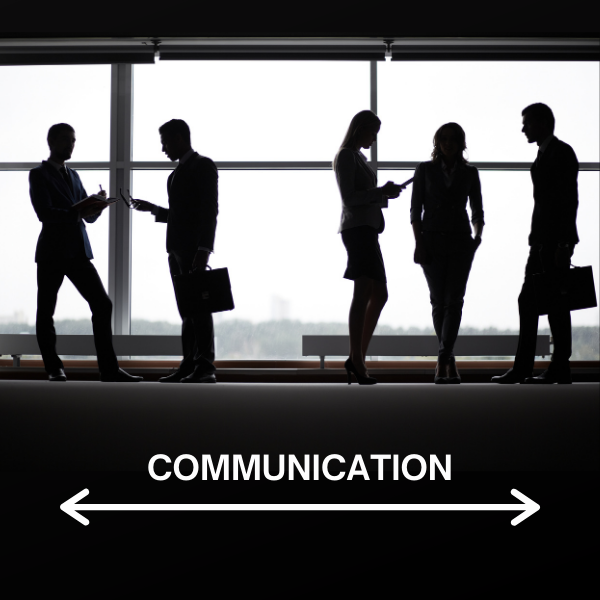
28 Jan
How to Communicate More Effectively with Introverts (And Extroverts)
Being able to communicate effectively becomes essential as you rise in your career. Any team you manage will include members with vastly different communication styles. The department heads and Board members you may work with do as well.
Sadly, most of us think of communication as output—speaking, writing, instructing, explaining, etc. We forget about the flipside, input, or listening. But we can change that.
As a vocational counselor, I learned about the Myers-Briggs Type Indicator (MBTI), which helps determine career satisfaction based on a person’s personality type. As a former psych student, I was intrigued. I read more about the MBTI and became certified to administer it as well.
Today, the MBTI is used by more than 88% of Fortune 500 companies for “people growth,” according to The Myers-Briggs Company, which publishes the assessment.
One of the most significant benefits I’ve found is that it can help people understand their communication style and others’ communication style. Here are a few things I learned about how we interact from Type theory.
Communication Styles
There are two ways people direct and receive energy. Extroverts get energy from others; they tend to think as they speak. On the other hand, Introverts get energy from inner reflections; they think before they speak.
If you’re an Extrovert, you’re probably exceptionally social. Being around other people energizes you, and you find being alone draining. You probably initiate conversation, say what’s on your mind, and speak first, think later. You may find yourself planning your response while the other person is still talking.
Introverts are almost the opposite. You get your energy from within and often find social events tiring. You are most likely a great listener, do your best thinking alone, pause to reflect before speaking, and choose your words carefully. You may often find yourself leaving a meeting without saying what’s on your mind.
These are two vastly different communication styles. To bridge the communication gap, we need to understand and respect other communication preferences. Here are a few ways that Introverts and Extroverts can communicate more effectively based on what I picked up from Type theory.
Extroverts
- Practice your listening skills. Focus on what the other person is saying instead of planning your response. Realize a few moments of silence while you gather your thoughts isn’t a bad thing.
- Don’t assume that someone’s silence means agreement. In meetings, ask others if they agree and wait for their comments.
- Remember that some people need time to reflect before answering. Be patient, give them a chance to gather their thoughts and respond. Again, don’t feel you need to fill every moment with words.
- Understand that some people prefer to see information in writing and express their thoughts and opinions that way too.
💡 Foster idea exchange by preparing and sending an agenda well in advance of meetings to give Introverts time to consider the outline and collect their thoughts.
Introverts
- Practice speaking up in meetings, don’t make others guess what’s on your mind. Tell them. If you disagree or have other ideas to add, say so.
- Remember that some people think aloud. While your thoughts may come out fully formed, an Extrovert might be formalizing their ideas as they speak.
- Work on developing your nonverbal communication skills, smiling, nodding will make you part of the conversation. Just make sure you’re not nodding along if you disagree.
- Understand that some people prefer to receive information verbally and share information the same way.
💡 Ensure preparedness by asking for a list of talking points before meetings if you haven’t received an agenda. Doing this gives you time to put some ideas together.
Preferences
It’s important to remember that identifying as an Introvert on the MBTI doesn’t mean you’re shy. I was shy as a kid. Years of bartending when part of my job was talking to strangers cured me of that. Now, I’m the person who chats with everyone: people in line at the grocery store, other diners at a restaurant, etc.
Still, according to my MBTI results, I’m an Introvert. And I agree. I love seeing my friends and colleagues at conferences. But, by the end of the day, I’m drained.
Meetings are a great place to observe people and get an idea of their communication style. Better yet, instead of assuming, ask people how they prefer to communicate.
The better you understand someone, the more you will get out of every exchange. Being flexible, adapting to other people’s communication styles is an excellent way to build rapport through every stage of your career.
